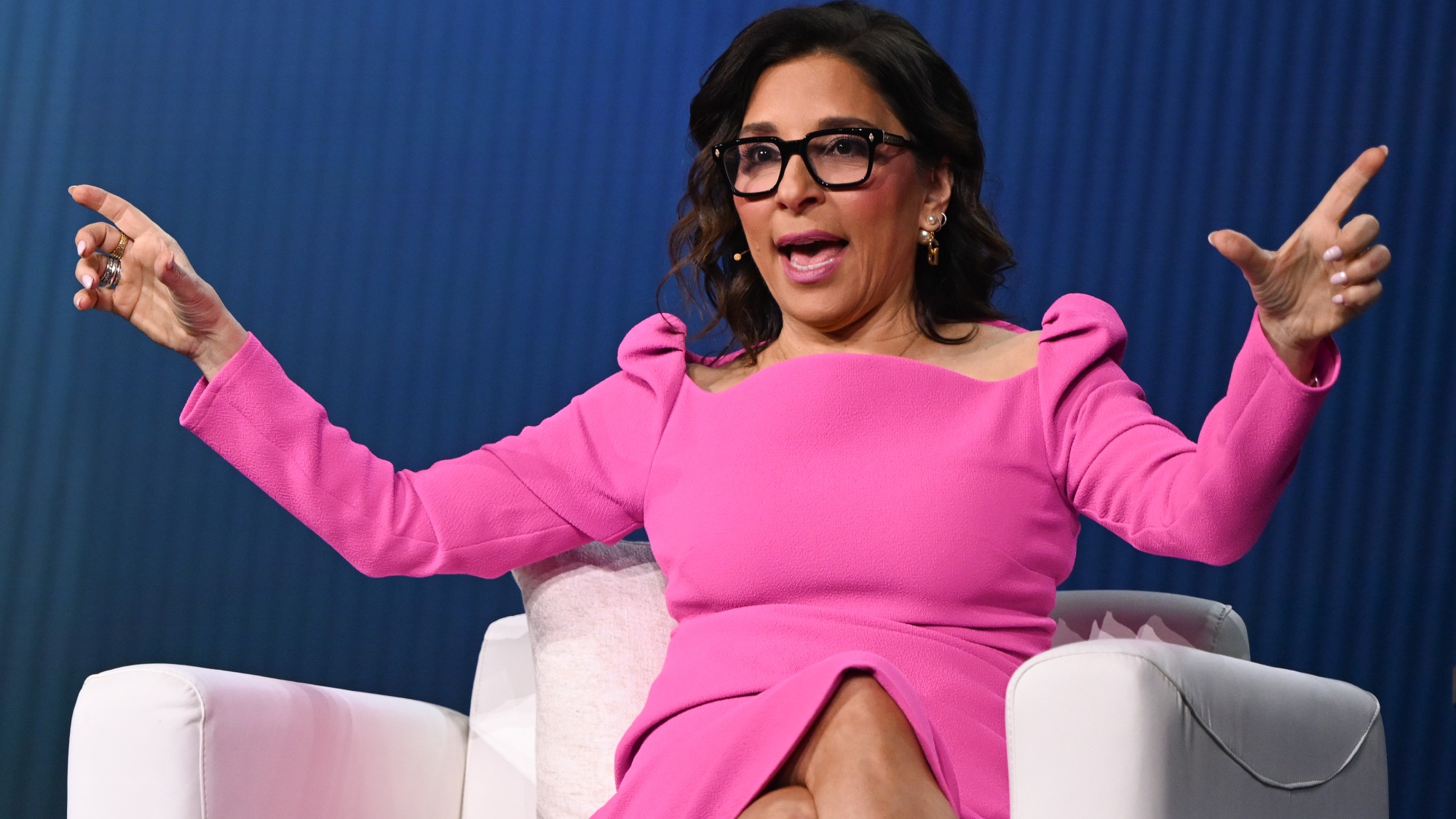Elon Musk delays Twitter paid verification, bans impersonators, reportedly tries to rehire fired workers

A free daily email with the biggest news stories of the day – and the best features from TheWeek.com
You are now subscribed
Your newsletter sign-up was successful
Buying a high-profile company and quickly making big changes is unlikely to be smooth sailing. For Elon Musk's $44 billion purchase of Twitter, the tempest is unusually public, often spinning out on Twitter.
Twitter on Sunday pushed back the rollout of its new Twitter Blue paid verification system until after Tuesday's election, The New York Times and other news organizations reported. The company had appeared to launch the new paid blue checkmark Saturday. Twitter is also trying to rehire dozens of the 3,700 employees it chaotically sacked Friday, deciding they "were either fired in error or too essential to the changes the billionaire businessman wants to make," Bloomberg News reports.
Musk himself tweeted Sunday night that "any Twitter handles engaging in impersonation without clearly specifying 'parody' will be permanently suspended," without a warning, adding that once the new Twitter Blue goes live, "any name change at all will cause temporary loss of verified checkmark." These "parody bans follow — and apparently contradict — an Oct. 28 promise from Musk that no 'major content decisions' would occur before the formation of 'a content moderation council with widely diverse viewpoints,'" The Daily Beast notes.
The Week
Escape your echo chamber. Get the facts behind the news, plus analysis from multiple perspectives.

Sign up for The Week's Free Newsletters
From our morning news briefing to a weekly Good News Newsletter, get the best of The Week delivered directly to your inbox.
From our morning news briefing to a weekly Good News Newsletter, get the best of The Week delivered directly to your inbox.
The policy change also follows a weekend in which several verified users, many of them celebrities, had changed their profile name to "Elon Musk" to highlight the reason Twitter started verifying accounts in the first place. Musk, a "free speech absolutist" and self-styled student of comedy, came in for some mockery.
Twitter's verification program started in "response to a fake account pretending to be former baseball manager Tony La Russa," Politico reports, and though it "has come to be seen as a brake on viral misinformation," the system has "also come in for criticism, often from right-wing populists, who deride 'blue-checkists' as a cabal of elites trying to protect their status."
The rollout of "new pay-for-play badges" right before the midterm elections prompted warnings from employees and cybersecurity experts, the Times reports, and a manager overseeing the change specified on Slack that the launch was moved "to Nov. 9, after the election."
"Twitter, whose communications team has been almost entirely laid off, did not immediately respond to a request for comment," the Times notes. In response to a tweet about the post-election rollout delay, Musk tweeted: "We are implementing additional safeguards to prevent impersonation, as well as collective use of verified accounts by a single individual or organization."
A free daily email with the biggest news stories of the day – and the best features from TheWeek.com
Peter has worked as a news and culture writer and editor at The Week since the site's launch in 2008. He covers politics, world affairs, religion and cultural currents. His journalism career began as a copy editor at a financial newswire and has included editorial positions at The New York Times Magazine, Facts on File, and Oregon State University.
-
 Why is Prince William in Saudi Arabia?
Why is Prince William in Saudi Arabia?Today’s Big Question Government requested royal visit to boost trade and ties with Middle East powerhouse, but critics balk at kingdom’s human rights record
-
 Wuthering Heights: ‘wildly fun’ reinvention of the classic novel lacks depth
Wuthering Heights: ‘wildly fun’ reinvention of the classic novel lacks depthTalking Point Emerald Fennell splits the critics with her sizzling spin on Emily Brontë’s gothic tale
-
 Why the Bangladesh election is one to watch
Why the Bangladesh election is one to watchThe Explainer Opposition party has claimed the void left by Sheikh Hasina’s Awami League but Islamist party could yet have a say
-
 Moltbook: the AI social media platform with no humans allowed
Moltbook: the AI social media platform with no humans allowedThe Explainer From ‘gripes’ about human programmers to creating new religions, the new AI-only network could bring us closer to the point of ‘singularity’
-
 Will regulators put a stop to Grok’s deepfake porn images of real people?
Will regulators put a stop to Grok’s deepfake porn images of real people?Today’s Big Question Users command AI chatbot to undress pictures of women and children
-
 Australia’s teen social media ban takes effect
Australia’s teen social media ban takes effectSpeed Read Kids under age 16 are now barred from platforms including YouTube, TikTok, Instagram, Facebook, Snapchat and Reddit
-
 Inside a Black community’s fight against Elon Musk’s supercomputer
Inside a Black community’s fight against Elon Musk’s supercomputerUnder the radar Pollution from Colossal looms over a small Southern town, potentially exacerbating health concerns
-
 X update unveils foreign MAGA boosters
X update unveils foreign MAGA boostersSpeed Read The accounts were located in Russia and Nigeria, among other countries
-
 Google avoids the worst in antitrust ruling
Google avoids the worst in antitrust rulingSpeed Read A federal judge rejected the government's request to break up Google
-
 Supreme Court allows social media age check law
Supreme Court allows social media age check lawSpeed Read The court refused to intervene in a decision that affirmed a Mississippi law requiring social media users to verify their ages
-
 What's Linda Yaccarino's legacy? And what's next for X?
What's Linda Yaccarino's legacy? And what's next for X?Today's Big Question An 'uncertain future' in the age of TikTok
